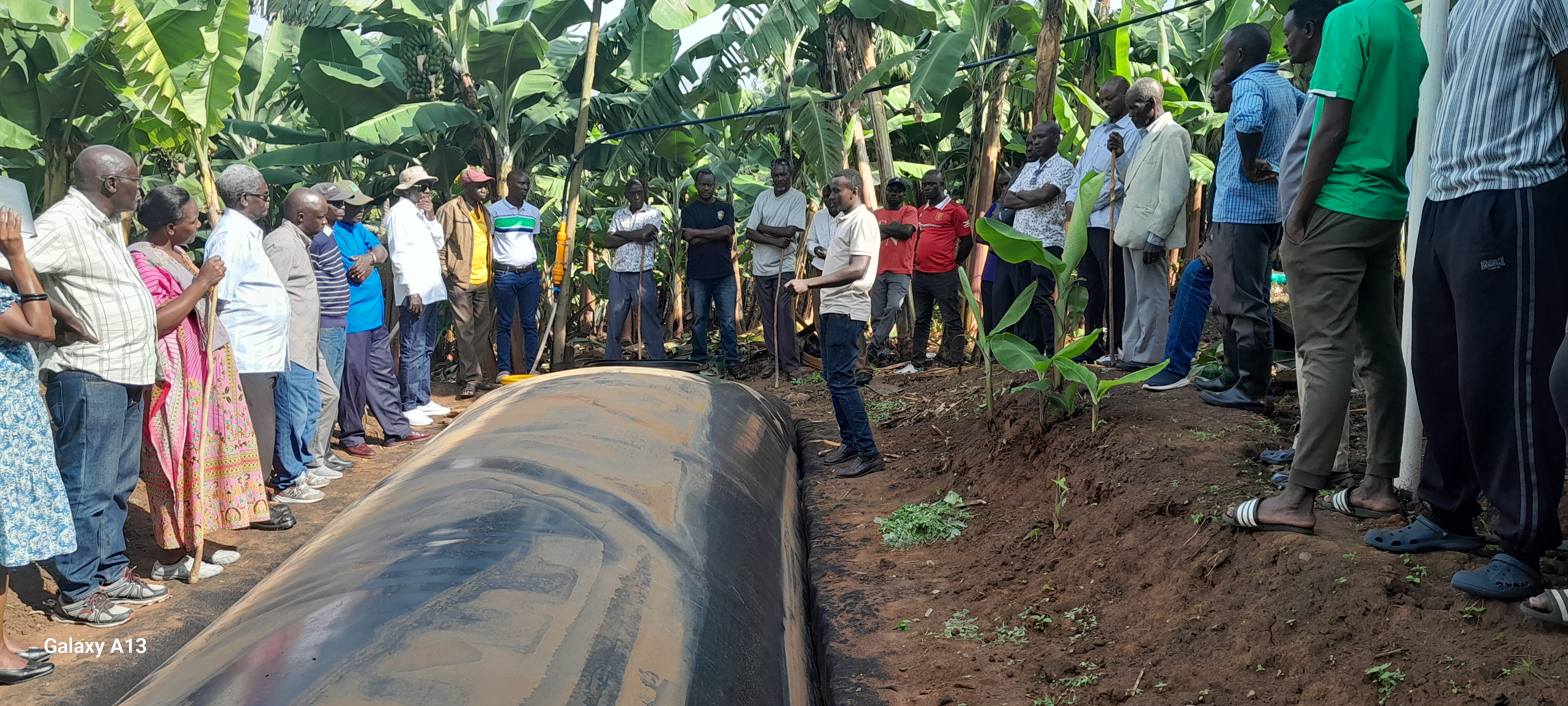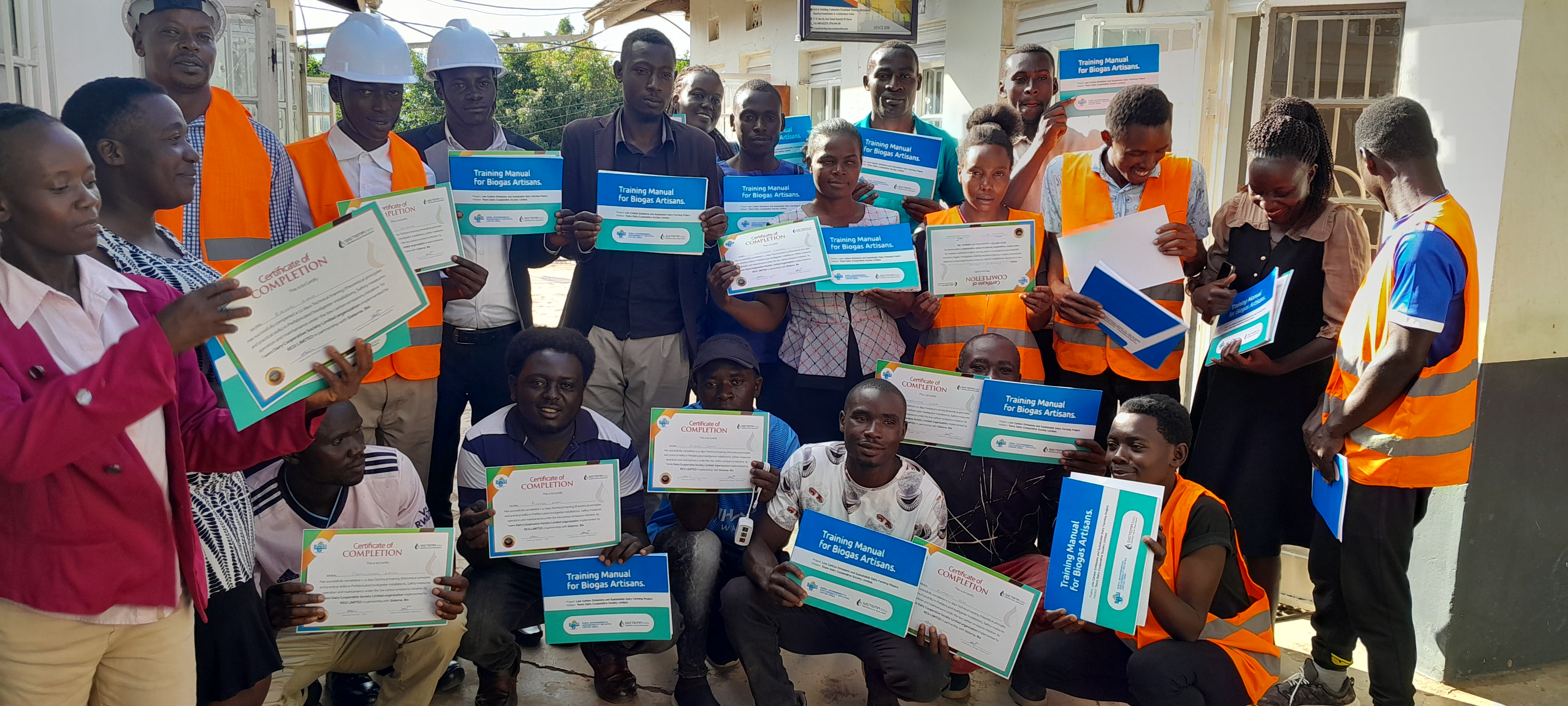

Transforming dairy farming practices through capacity building, infrastructure improvement, and sustainable technologies.
Supported by aBi Development Limited to reduce greenhouse gas emissions and enhance sustainability
The Low Carbon Emission and Sustainable Dairy Farming Project (Sept 2023 – May 2024) aimed to revolutionize smallholder dairy farming by reducing greenhouse gas emissions, boosting productivity, and improving livelihoods. Implemented by Toro Dairy Cooperative Society with support from aBi Development Limited, the project focused on farmer capacity building, infrastructure upgrades, and adoption of sustainable farming technologies such as biogas and water harvesting.
This climate change intervention is in line with the dairy’s commitment to build resilient dairy value chain.
• Building capacity of smallholder dairy farmers in GHG emissions management
• Improving milk marketing infrastructure including collection, storage, and processing
• Enhancing dairy farmers' networking with service providers
• Promoting biogas technology and water harvesting systems

Farmers trained in sustainable dairy farming (vs. 375 target)
Farmers trained in zero-grazing models (exceeding 375 target)
Improved exotic dairy breeds distributed (above 20 target)
Demonstration farms established (target 5)
Milk collection centers installed and branded (target 3, reduced due to costs)
Farmers adopting biogas technology (replication rate >150% in 6 months)
Annual carbon absorption capacity from biogas systems
Youth trained as water/biogas artisans (above 30 target)
Turning sustainability goals into measurable results
Over 675 farmers trained in sustainable dairy farming, record-keeping, and financial literacy — nearly double the original target.
Distribution of 22 improved exotic heifers, launching an inclusive dairy animal revolving credit scheme.
6 demonstration farms equipped with pasture plots, shade structures, and biogas digesters; 2 milk collection centers refurbished and operational with cooling capacity of 1,000 liters each.
28 farmers adopted biogas technology with a replication rate of over 150% in less than 6 months
40 youth trained in fabrication, installation, and maintenance of low-cost water systems and biogas digesters, leading to immediate employment.
Reducing carbon emissions while improving farm productivity
Installed biogas digesters with capacity to absorb 2,184 kg of carbon annually.
Conversion of animal waste into clean, renewable energy.
Training in water harvesting technologies; 9 systems installed with replication among farmers.
Adoption of zero-grazing, pasture establishment, and improved feeding systems across member farms.
Building the next generation of green entrepreneurs
The project trained 40 youth as water and biogas artisans. Within months, success stories emerged:
• 1 artisan gained permanent employment.
• 10 artisans engaged part-time in biogas installations.
• 1 graduate launched their own company (BAKASIMIRA Underground Water Uganda).
• 4 trained on part-time basis for water projects
• 4 youth employed part-time on water well projects, achieving a 200% replication rate in less than 3 months.

• From Waste to Energy: One farmer who received a biogas system shared how they no longer struggle with firewood collection. Animal waste is now converted into clean cooking fuel, saving time, reducing smoke-related health issues, and cutting household costs. Neighbors, inspired by this success, replicated the system on their own — driving the project’s replication rate above 150% in just 6 months.
Among the 40 youth trained, one graduate turned skills into enterprise by founding BAKASIMIRA Underground Water Uganda. Within months, he was contracted for 8 additional well projects (including repairs), creating jobs for peers and proving that sustainability projects can unlock entrepreneurship.
The project surpassed expectations for women’s participation, with 126 women farmers trained (double the target). Many have since adopted zero-grazing and milk quality standards, improving household incomes and elevating women’s role in cooperative leadership.